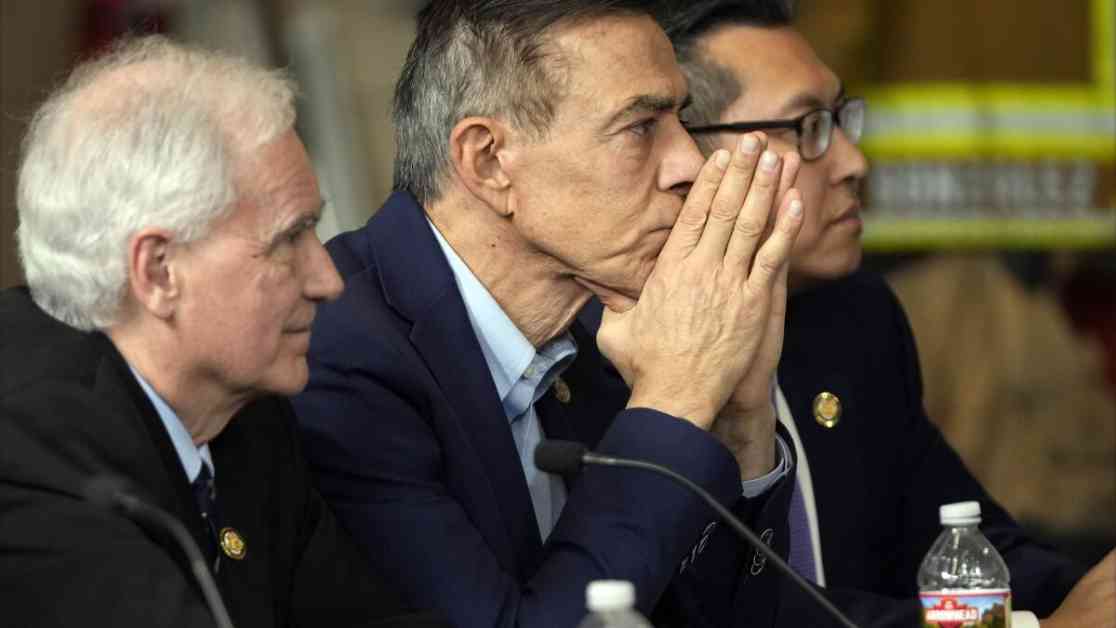In the ongoing battle between President Trump and federal judges, tensions have reached a boiling point as court orders against his administration continue to mount. Trump’s recent attacks on federal judges have sparked controversy and calls for impeachment, particularly as he takes aim at the power of nationwide injunctions issued by district judges. One California Republican, Rep. Darrell Issa, has stepped into the fray with a proposed legislation to rein in the judiciary and limit the impact of these injunctions. As the political landscape becomes increasingly polarized, it’s crucial to understand the implications of these legal battles and the potential consequences for the country as a whole.
Behind the Scenes of Political Turmoil
As President Trump lashes out on social media and calls for restrictions on district judges’ ability to issue nationwide injunctions, the political landscape is fraught with tension and uncertainty. The No Rogue Rulings Act, introduced by Rep. Darrell Issa, aims to curb the power of federal judges who are perceived to be obstructing Trump’s agenda. This legislation has garnered support from prominent Republicans, including the president himself, as they seek to push back against what they see as judicial overreach.
In the midst of this legal battle, U.S. District Judge James Boasberg of the District of Columbia has emerged as a key figure, issuing orders that have directly challenged Trump’s policies. Boasberg’s actions have drawn criticism from the administration and fueled concerns about the judiciary’s role in shaping national policy. The clash between the executive and judicial branches reflects a broader struggle for power and influence in Washington, as both sides dig in for a protracted fight.
The Legal and Political Implications
Legal experts and constitutional scholars are closely watching the unfolding drama, as the fate of nationwide injunctions hangs in the balance. Erwin Chemerinsky, dean of the UC Berkeley Law School, has voiced strong opposition to Issa’s bill, warning that it could lead to chaos and conflicting rulings across the country. The issue of nationwide injunctions has long been a subject of debate and contention, with both Democrats and Republicans grappling with the implications of judicial activism.
Despite Issa’s efforts to limit the power of federal judges, questions remain about the practical impact of such legislation. Justin Levitt, a constitutional law professor at Loyola Law School, has raised concerns about the bill’s ability to address Trump’s frustrations with court rulings on executive orders. With the nation’s partisan divide growing sharper, the issue of nationwide injunctions has become a flashpoint for political and legal battles that could have far-reaching implications for the future of American democracy.
In the midst of this legal and political turmoil, the fate of nationwide injunctions hangs in the balance. As Republicans rally behind President Trump and seek to rein in the judiciary, the consequences of these actions remain uncertain. The clash between the executive and judicial branches underscores the challenges of maintaining a balance of power in a polarized political environment. As the debate over nationwide injunctions continues to unfold, the stakes are high for both the administration and the judiciary, with far-reaching implications for the future of the country.














